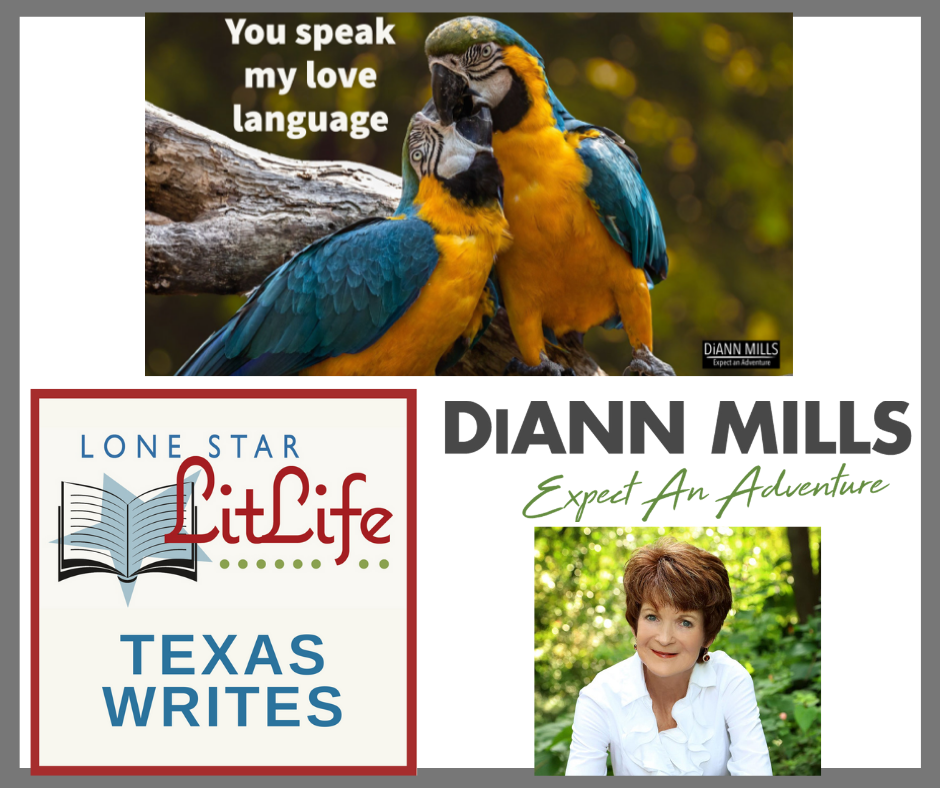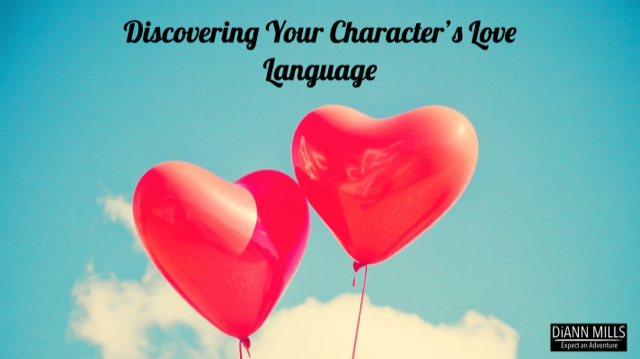
"Explore the power of love"
A love language gives us insight into understanding one of the basic needs of all humans—love. Determining a character’s love language adds dimension to the story’s psychological landscape. The writer uses realistic motivation and details that reflect how other story players can move closer to the character.
Maslow’s Hierarchy of Needs lists love as an essential need for human satisfaction and fulfillment. Every human craves love/belonging, although some deny it for psychological reasons. The writer’s challenge is to dig deep and discover what has been nurtured and what lacks development. Once the aspect is revealed, character growth and change can be explored and woven into story positively or negatively.
We are born with three basic needs:
- Relationships
- Significance
- Security
The element of love is essential for all three needs.

Gary Chapman in his The Five Love Languages explains the following five ways love is shown:
- Words of affirmation
- Quality time
- Receiving gifts
- Acts of service
- Physical touch
Characters often have more than one love language, but one will be prominent. There is our goldmine.
A character who grew up alone without encouragement and forced to be independent may soften with a person who demonstrates sincere acts of service.
A character who experienced criticism all his/her life may respond well to words of affirmation.
A character whose parents never spent quality time with them may appreciate someone who shares individual attention.
A character who grew up in an environment where gifts weren’t viewed as important may be moved emotionally by a tangible token of appreciation.
A character who never encountered physical touch longs to experience the connection of one human to another. That character may enjoy a loving pet yet be fearful of human relationships.
Another consideration for a character’s grasp of love is the view of faith. Christianity, Judaism, Islam, Buddhism, Hinduism, Sikhism, and other religions often define love according to their doctrine. For the story player who doesn’t value faith, life happenings and what the character values most will dictate the character’s values and moral behavior.
A character who faced lack of love in childhood, adolescence, or adulthood may never allow themselves to become vulnerable again. The character places a protective shield around their heart and rejects intimacy on many levels of love. A wounded heart is the hardest to heal. Numbness sets in, and the character may never comprehend the damage.
Our characters crave love to sustain them like the body needs food and water. Without affection, loneliness, depression, and even health issues creep in and chain the character’s ability to enjoy life. The character may not understand what loving oneself or others really means. Trust issues and high expectations or perfectionist attitudes of themselves and others are used to seize control of the missing emotion. Many times, they explore other avenues to fill the emptiness, only to discover nothing works. A character can live without love, but they are miserable.
Characters who long for a sense of family and belonging may choose a gang or lawless group to meet those needs. Many times, the draw to a group is a fellowship of acceptance. An antagonist is usually missing an aspect of love.
Finding love when a character never dreamed it possible is a victory, a promise of story fulfilled. How a character responds and reacts to love shows who he or she is psychologically. The writer examines the love language or the nonexistent to create twists and turns in the storyline. Explore the power of love to see how your character opens up or shuts down, and how it affects the story.
DiAnn Mills is a bestselling author who believes her readers should expect an adventure. She is a founding board member of the American Christian Fiction Writers, director of the Blue Ridge Mountains Christian Writers Conference, and a member of Advanced Writers and Speakers Association, Mystery Writers of America, Sisters in Crime, and International Thriller Writers.
DiAnn is passionate about helping other writers be successful and speaks to various groups and teaches writing workshops around the country. She and her husband live in sunny Houston. DiAnn is very active online and loves to connect with readers on social media and at www.diannmills.com.
